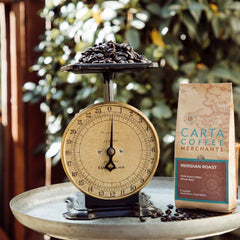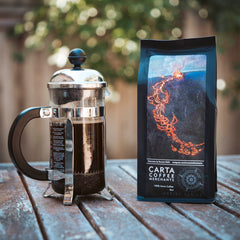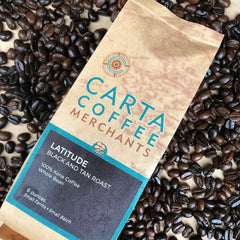Posted on

Coffee affects the human body in a wide variety of ways. It’s widely known as a stimulant that helps keep people awake, and has a host of lesser-known health benefits. Once that first cup of coffee hits your lips, it triggers a chain reaction of events inside your body.
Over the years, there has been much debate in the medical community as to whether coffee is healthy or not. Every few months a study would come out that would be for or against it. In 2016 the World Health Organization officially took coffee off its list of known carcinogenic substances. Since then science has come to the conclusion that coffee is indeed very healthy and beneficial to the human body – provided it is consumed in moderation.
It takes around 45 minutes for coffee to be absorbed into your system. If you start to notice that you’re feeling more awake, or have more energy prior to that 45 minutes passing, it’s most likely all in your head. We’re going to take a look at what coffee does to your mind and body as well as the health benefits it offers. We’ll also look at the negative effects that drinking too much coffee can have.
Diuretic
Coffee makes you urinate more frequently. Many people have said that for every cup of coffee that you drink, you should drink an extra glass of plain water to offset the liquid loss. While coffee is a diuretic, there aren’t any negative health risks if you only drink one or two cups per day. If you drink more than that, it can cause your body to become dehydrated which can lead to headaches and even poor absorption of the food that you eat.
Many regular coffee drinkers find that they have to “go #2” after drinking just one cup of coffee. Currently, experts aren’t sure exactly why this is, but they suspect that coffee causes more movement in the colon, which in turn causes you to have to go to the bathroom. This isn’t a heavily studied topic, but the most recent study in the 1990’s revealed that around 29% of people who drink coffee had a bowel movement immediately afterwards.
Brain
The caffeine inside coffee is similar to a molecule inside your brain called adenosine. Caffeine molecules bind to adenosine receptors and prevent it from binding to the brain cells. This in turn prevents the brain from getting sleepy or tired. It also produces a sense of well-being and mood-enhancing feelings. Many Air Force pilots are given caffeine pills in order to keep them alert and awake during their long missions.
Anti-oxidants
Coffee is very rich in antioxidants. They can help reduce cavities, boost athletic performance, stop headaches, and even help prevent a wide range of diseases such as colon cancer, liver cancer and even cirrhosis of the liver.
Magnesium is also found naturally in coffee. Many people have a magnesium deficiency and coffee is a terrific way to make up for it. It has also been suggested that coffee can help lower your risk of type 2 diabetes.
Nervous system
Coffee also acts as a stimulant of the central nervous system. It results in a feeling of being more awake. It can also help prevent headaches, and this is why it’s usually the main ingredient in medications that help treat headaches and migraines.
However, it can have the exact opposite effect as well. Over time the blood vessels in your brain will get used to the effects of coffee, and if you lower your daily intake or stop suddenly, you can get very bad headaches and migraines.
The Mayo Clinic suggests that a round 400 milligrams of caffeine in coffee per day is considered safe. That breaks down to about 4 cups of coffee. Any more and you’ll start to notice both short and long term negative effects.
What Happens if You Drink Too Much Coffee?
Coffee, like anything else in life, should be taken in moderation. Too much coffee can lead to one or more of the following conditions:
Digestive Issues – Coffee can increase the amount of acid in the stomach. It can easily cause upset stomach or heartburn. People who suffer from acid reflux or ulcers are more susceptible to stomach issues when drinking coffee.
Weight gain – While coffee itself contains no calories, the milk and sugars added can make a single Grande Mocha come out to around 700 calories. This can lead to substantial weight gain as well as an increased chance in certain health conditions. It’s best to drink black coffee and this is how most premium coffee is drunk.
Increased blood pressure – This is especially harmful for those who already suffer from hypertension – and don’t normally consume coffee. A study was performed where people with hypertension were given 2 coffees and the results revealed that their blood pressure was extremely high for 2-3 hours afterwards.
Additional risks – If coffee isn’t consumed in moderation, insomnia, headaches, reduced fertility in women, and even panic attacks can offer. This is why it’s best to drink coffee in moderation as well as watch your water intake levels. If you drink a lot of coffee on a daily basis, be sure to drink 1-2 extra glasses of water to help prevent dehydration.
Conclusion
Like anything in life, coffee is best consumed in moderation. Yes, there is a small risk of addiction if you drink too much coffee, but the withdrawals are extremely mild and only last a few days.
Keep in mind that the health benefits of coffee only pertain to coffee – not the 5lbs of sugar and sweeteners that most people put inside. If you like to add sugar and creams to your coffee, you could actually be harming your health. If you drink black coffee made from premium Kona coffee beans you will start enjoying your coffee on a whole new level as well as reaping the benefits that coffee has to offer!





